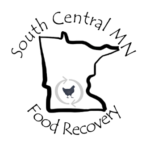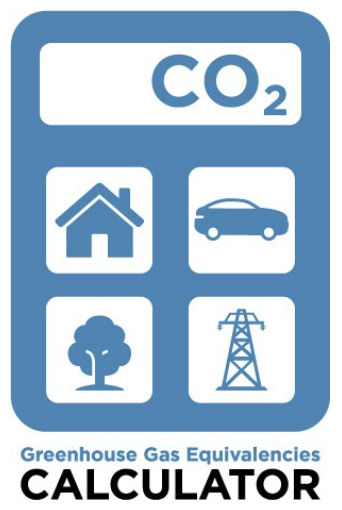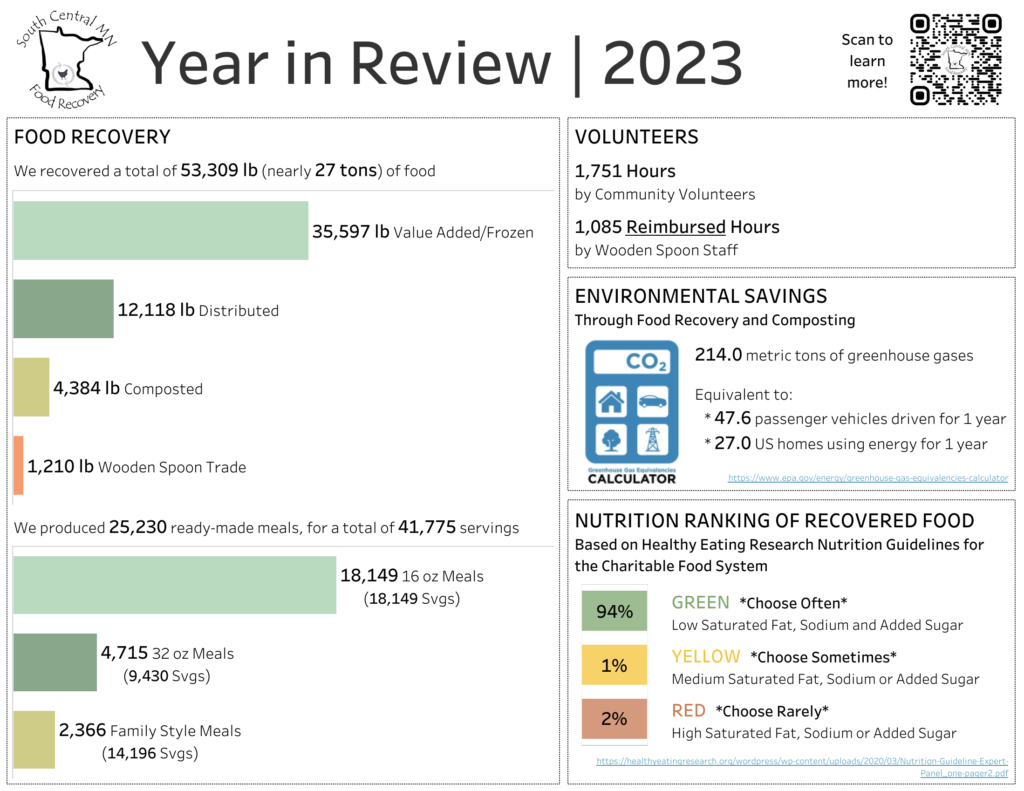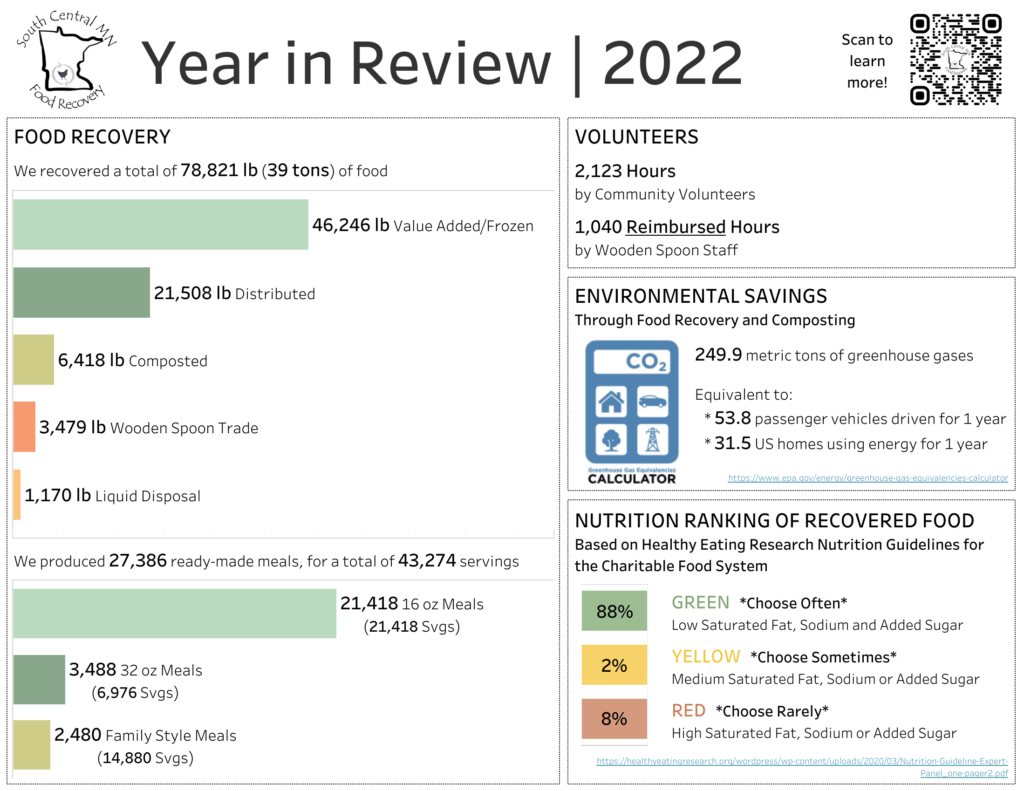By the Numbers
Our commitment to food and environmental justice is unwavering. From 2021 to 2023, we have distributed nearly 97,000 servings of food for free across south central Minnesota. We have recovered nearly 110 tons of food, which is equal to the greenhouse gases produced by 144 ½ gasoline-powered passenger vehicles in the U.S. driven for a year or the greenhouse gases produced by 83 U.S. homes’ energy use in a year.
Food Recovered
In 2021, we recovered a total of 86,428 pounds (over 43 tons) of food.
In 2022, we recovered a total of 78,821 pounds (over 39 tons) of food.
In 2023, we recovered a total of 53,309 pounds (nearly 27 tons) of food.
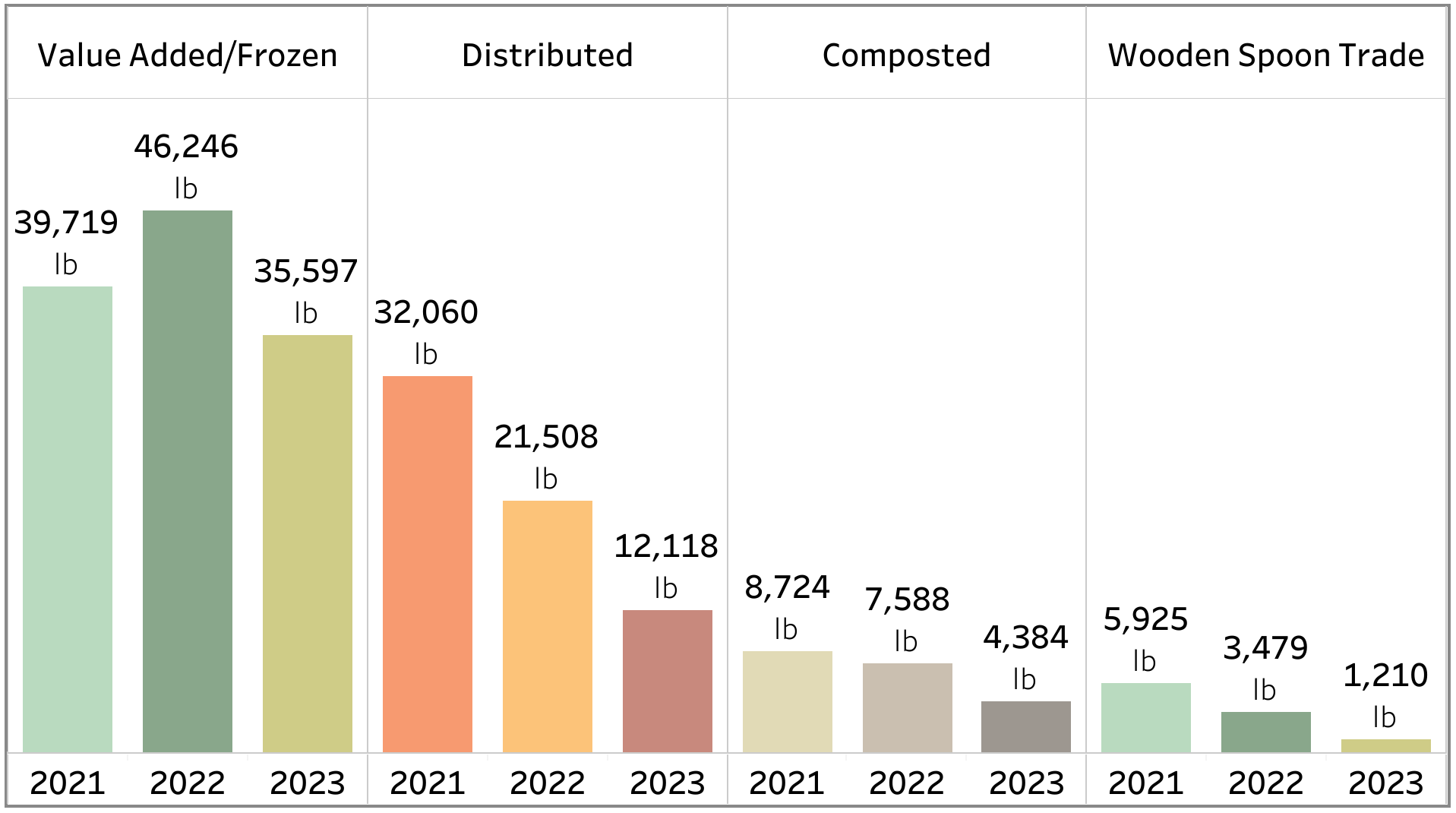
* Note: Composted includes Liquid Disposal.
Ready-Made Meals
In 2021, we prepared a total of 8,250 ready-made meals (11,674 servings).
In 2022, we prepared a total of 27,386 ready-made meals (43,274 servings).
In 2023, we prepared a total of 25,230 ready-made meals (41,775 servings).
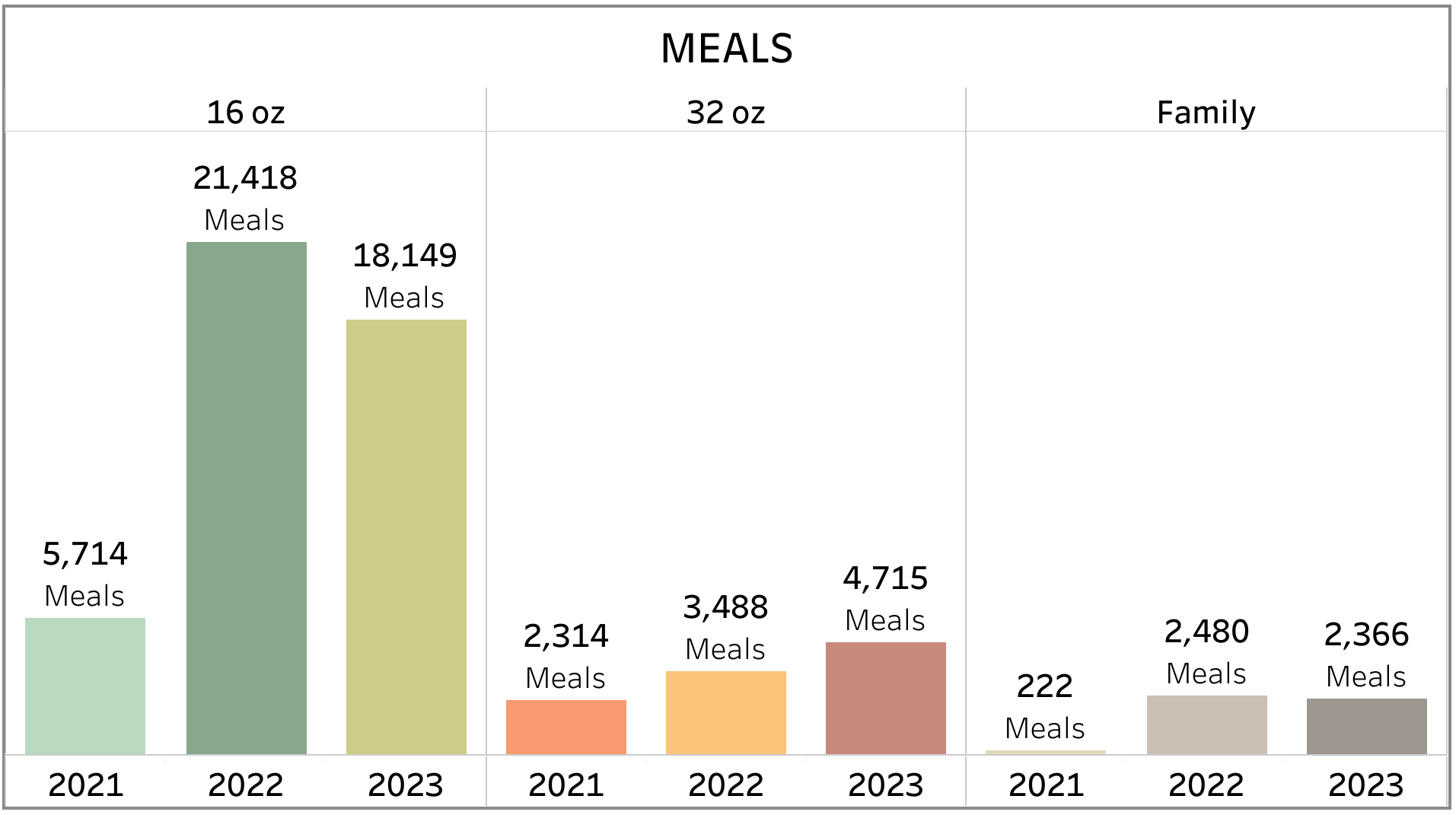
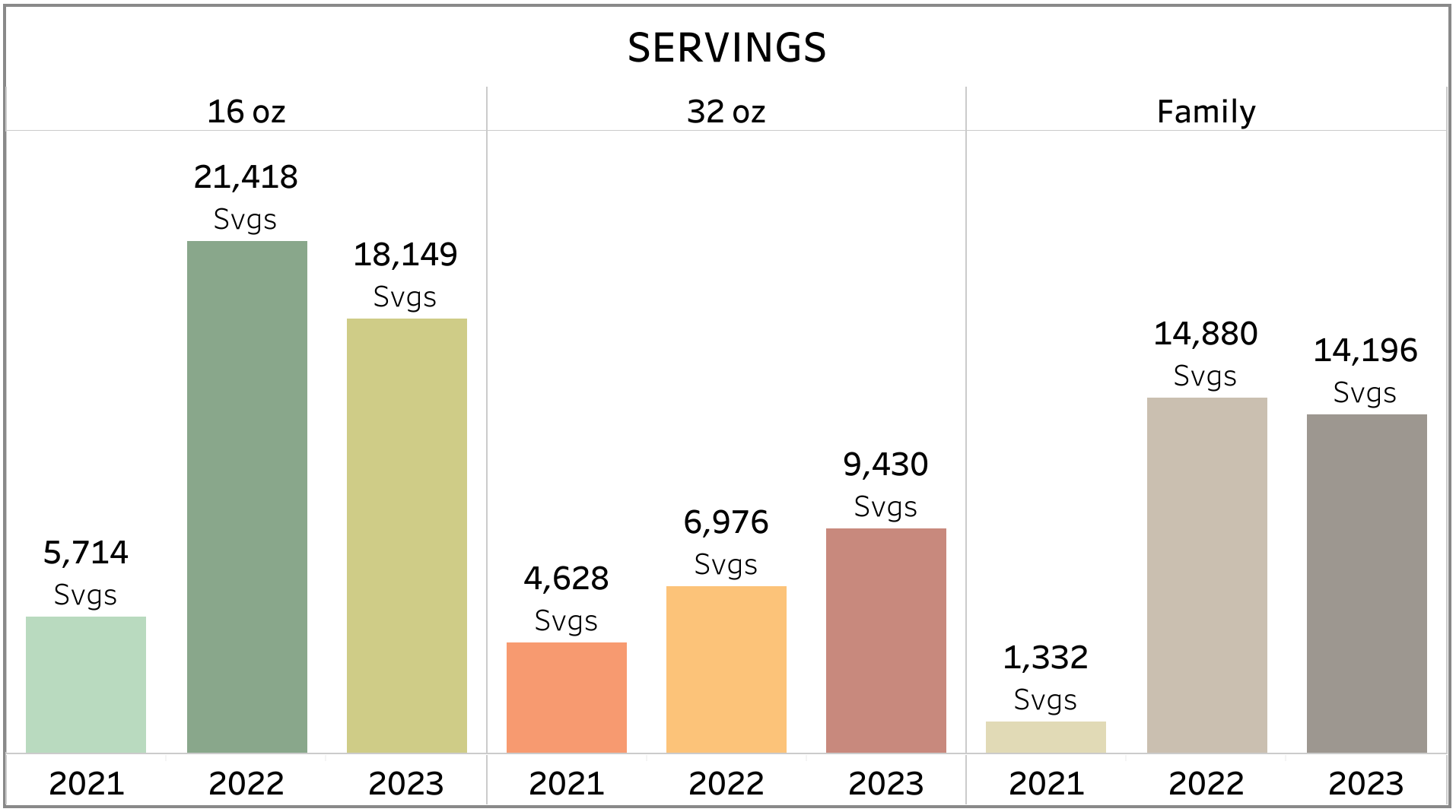
Volunteers
Volunteers dedicate thousands of hours each year to help process recovered food and prepare ready-made meals for distribution by community partners. Hundreds of additional hours (not included in the numbers below) are donated to help with building and installation of equipment, food deliveries, and special projects.

In 2022, Wooden Spoon staff worked 1,040 reimbursed hours for SCMNFR.
In 2023, Wooden Spoon staff worked 1,085 reimbursed hours for SCMNFR.
ENVIRONMENTAL SAVINGS
Through Food Recovery and Composting
In 2021, we avoided 200.12 metric tons of greenhouse gases, which is equivalent to:
- 43 passenger vehicles driven for one year in the US; or
- 25 US homes using energy for one year.
In 2022, we avoided 249.9 metric tons of greenhouse gases, which is equivalent to:
- 53.8 passenger vehicles driven for one year in the US; or
- 31.5 US homes using energy for one year.
In 2023, we avoided 214.0 metric tons of greenhouse gases, which is equivalent to:
- 47.6 passenger vehicles driven for one year in the US; or
- 27.0 US homes using energy for one year.
Nutrition Ranking of Recovered Food
We use Healthy Eating Research Nutrition Guidelines for the Charitable Food System, which are designed to help promote healthy food choices at food banks and food pantries. These guidelines rank foods based on levels of saturated fat, sodium and sugar because these nutrients are linked with increased risk of chronic diseases.

